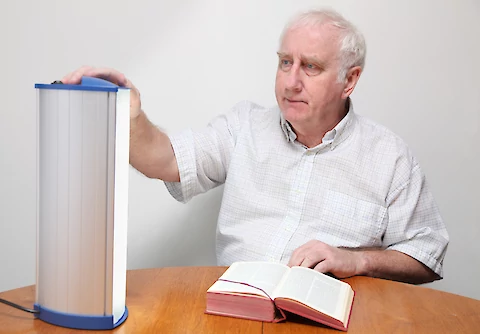
Seasonal Affective Disorder (SAD) is a form of depression that emerges during particular seasons of the year. It often occurs during the shorter and less sunny days of winter. Its impact can be profound, particularly among seniors whose routines and social interactions may already be limited. Recognizing and understanding SAD is essential to maintaining mental health and well-being. This Senior Helpers blog post discusses the complexities of SAD, highlights the tell-tale symptoms, and suggests practical ways to manage this condition for seniors.
Understanding SAD in Seniors
SAD, commonly referred to as winter depression, affects many older adults. As daylight hours dwindle, seniors may find themselves experiencing feelings of depression, loneliness, and lethargy. These feelings can also co-exist with physical symptoms such as disrupted sleep patterns, changes in appetite, and difficulty concentrating. Recognizing these symptoms is the first step to addressing and managing SAD effectively.
Practical Strategies for Managing SAD
There are several things caregivers can do to help seniors manage the symptoms of SAD. Here are a few:
Try Light Therapy
One of the most effective approaches to managing SAD is the use of light therapy. A light box can mimic outdoor light and induce biochemical changes in the brain that help to lift mood, increase energy levels, and improve sleep. This therapy is particularly beneficial for seniors who may find it difficult to get outside during the colder months. The effectiveness of light therapy can be further enhanced when complemented with a regular schedule and routine.
Keep a Regular Schedule
Maintaining a regular schedule, including consistent sleep and wake times, can help regulate the body's internal clock and mitigate some of the effects of SAD. Engaging in regular physical activity has been shown to improve mood and energy levels, both of which can be negatively impacted by SAD. Simple activities like walking, stretching, or participating in a gentle yoga class can make a noticeable difference. Always consult with healthcare professionals before starting any new exercise routine.
Encourage Social Interaction
Beyond physical activity and routine, social interaction can serve as a powerful tool against SAD. Keeping in touch with loved ones and engaging in social activities, even if virtual, can help to combat feelings of loneliness and isolation. The winter season is also a good time to get together with neighbors or family for a movie night or a card game. Seniors can join online book clubs or gardening clubs to chat and share ideas.
Maintain a Balanced Diet
It is a good idea to make sure seniors maintain a balanced diet with plenty of fresh fruits, vegetables, and lean proteins to help manage SAD symptoms. Eating well increases energy levels and will make seniors feel lighter and more apt to move around. Most importantly, incorporating Vitamin D-rich foods like egg yolks and oily fish on the darker days and the tendency to remain cozy inside can lead to a Vitamin D deficiency.
The Role of In-Home Caregivers
In-home caregivers play a substantial role in implementing these strategies and providing the necessary assistance for seniors affected by SAD. They can help set up light boxes, encourage regular physical activity, assist with meal preparation to ensure a healthy diet and provide much-needed social interaction. Caregivers provide seniors with an extra level of support and help them feel connected despite the challenges posed by SAD.
Senior Helpers Understand the Challenges of SAD
Senior Helpers offers customized, in-home senior care services, including companion care. If you live in the Palm Coast, Flagler, St. Johns, or St. Augustine areas, don't hesitate to contact us today at Senior Helpers Palm Coast. We are committed to helping seniors live their best life possible and navigate SAD with empathy and expertise.